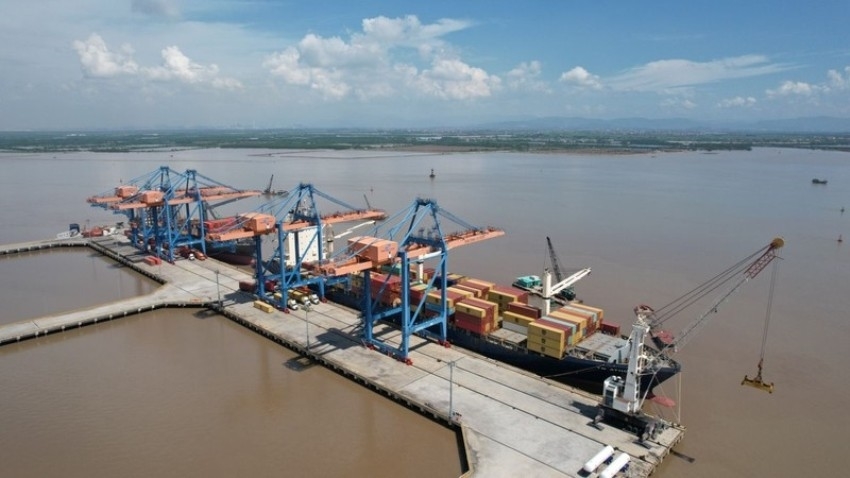    |
 |
| Lach Huyen Port |
According to the Vietnam News Agency (TTXVN), the article quotes Mr. Horst Geicke, an investor and Chairman of the German House in Ho Chi Minh City, stating that Vietnam is considered a new investment destination for foreign investors in general, and particularly for German enterprises.
As stated by the article, in the past, Vietnam focused mostly on developing tourism and exporting particular products such as agricultural goods, clothing, and footwear. However, Vietnam is now rapidly expanding its manufacturing and business activities in electronics and other sectors. A prime example of this is the Samsung Group from South Korea, with half of Samsung's mobile phones now being produced in Vietnam.
In Asia, Vietnam and Singapore are the only countries having signed the Free Trade Agreement with the European Union (EVFTA). Among the German businesses looking to Vietnam are automotive parts suppliers Brose and ZF, equipment manufacturer Kärcher, construction materials provider Knauff, and consumer goods company Henkel. The article also recalls the visit of German Chancellor Olaf Scholz to Vietnam in November 2022, stating that German leaders highly appreciate the relationship with Vietnam and aim to further strengthen this partnership.
In an article entitled “Investing in Vietnam”, the German magazine PT-Magazin suggests that, in their efforts to diversify supply chains, medium-sized businesses still consider Vietnam an intriguing option. According to the article, Vietnam is one of the developing countries with a policy of embracing a free market, which is attracting numerous foreign investors. The continuous increase in Foreign Direct Investment (FDI) in recent years and the establishment of related manufacturing facilities serve as evidence of this trend.
Also mentioned in the article, two factors, “domestic” and “global,” are the reasons why Vietnam has become a center for many supply chains. Domestically, Vietnam still maintains its strength with relatively low costs, even though expenses for commercial real estate and wages are on the rise. Furthermore, Vietnam enjoys political stability, enabling businesses to plan their operations reliably. The regulatory conditions for foreign direct investment are mostly liberalized, and Vietnam also benefits from EVFTA (the Free Trade Agreement between the European Union and Vietnam) as well as from other agreements within ASEAN.
